Floods, fires, hurricanes… our world is evolving. Weather events that were unfathomable 20 years ago are the new normal. Messages of preparedness are everywhere, and it is easy to feel overwhelmed by all that we need to do. We all need to plan for what we’ll do- just in case. Don’t forget your pets in your plan.
Here are some tips on how to protect your pets and be equipped to take your pets with you if you must evacuate your home.
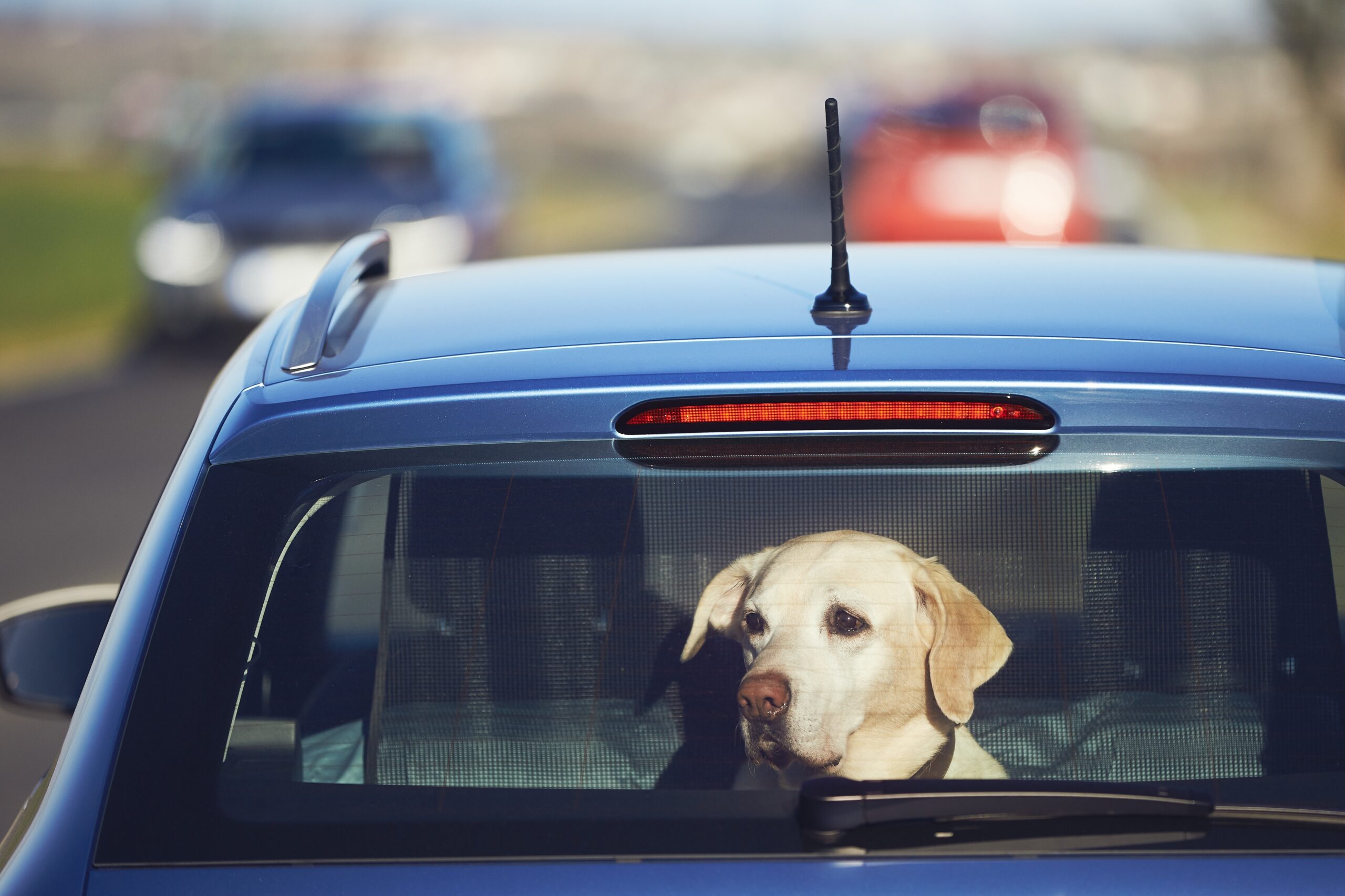
Many emergency shelters or hotels do not admit pets, so it is important to find places in advance that do. Search now for local and out-of-area pet-friendly hotels. Also, check out boarding facilities, or make a housing exchange agreement with an out-of-area friend or relative.
If you are not home when an evacuation is ordered, make sure you have a plan with friends or neighbors to evacuate your pets. Exchange keys, give your friend your pets’ medical information, and share your emergency contact information.
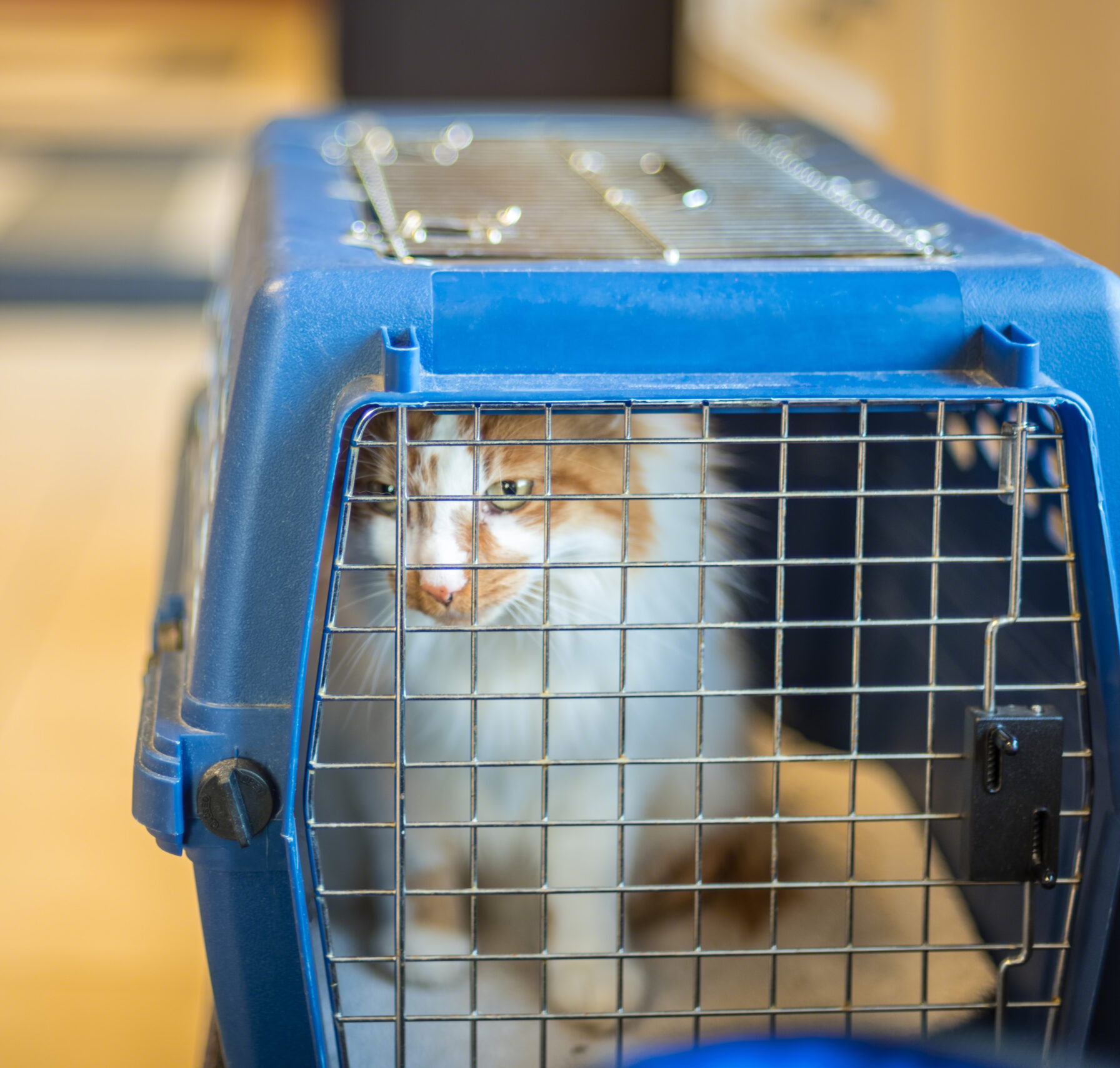
Having an emergency kit assembled and ready for each pet is essential. It’s recommended to have two kits, one larger kit for sheltering in place and one lightweight version for evacuations. Review your kits regularly to ensure that their contents, especially foods and medicines, are fresh. A kit should include (in an airtight waterproof container): several days’ supply of food, a water bowl, a supply of water, medicine your pet takes on a regular basis, a first aid kit, a collar with an ID tag, a harness or leash, a crate or sturdy carrier, ideally one for each pet, grooming items, sanitation needs (waste bags, pet litter, and litter box), and favorite toys, treats or bedding.
In case your pet is lost in an evacuation or disaster, make sure every pet is microchipped. Be sure to update your microchip registration when you move, change phone numbers, get a new emergency contact, or change veterinary clinics. In addition, keep an ID tag on your pets’ collars. Take photos of you with your pets so you can prove ownership if you are separated from your pets.
This all can seem overwhelming and stressful, but if you are faced with a disaster, your dear pets will be part of your plan. Start by doing one small thing today. Take one action that contributes to your readiness and encourage others to do the same.
For a more complete list of ways to be prepared, visit the Red Cross checklist for Pet Disaster Preparedness.

Aspen is a six-year-old, 65-pound female cattle dog mix who is friendly, mellow, and loves people. Her coat is mostly white, and she has one brown eye and one blue eye. She will do best in a home that has no other female dogs.
Second Chance Humane Society’s Animal Resource Center and Shops have served San Miguel, Ouray & Montrose Counties since 1994. Adoption hours are Wednesday through Sunday from 11 am to 5:30 pm. View our shelter pets and services online: www.secondchancehumane.org

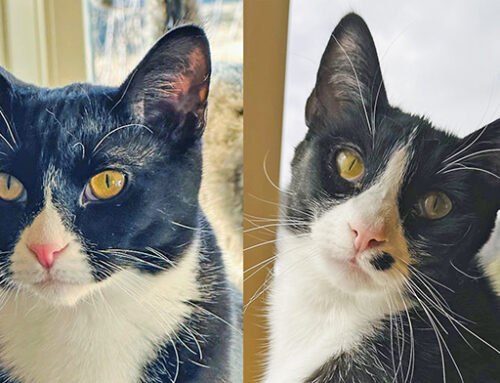
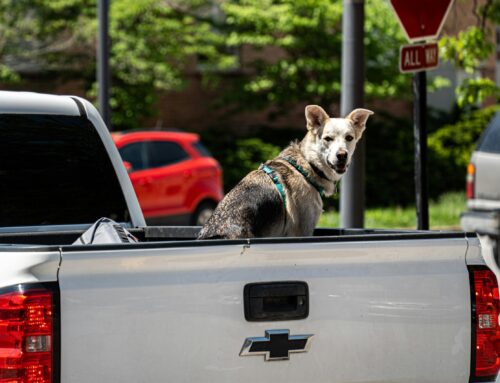

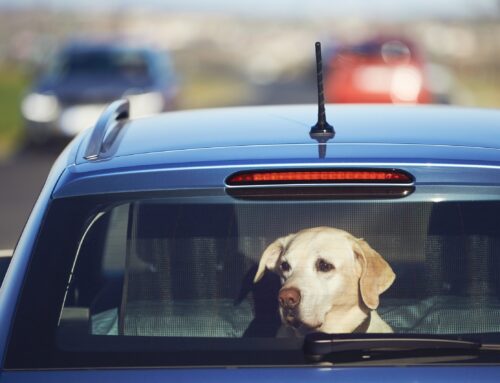


Leave A Comment